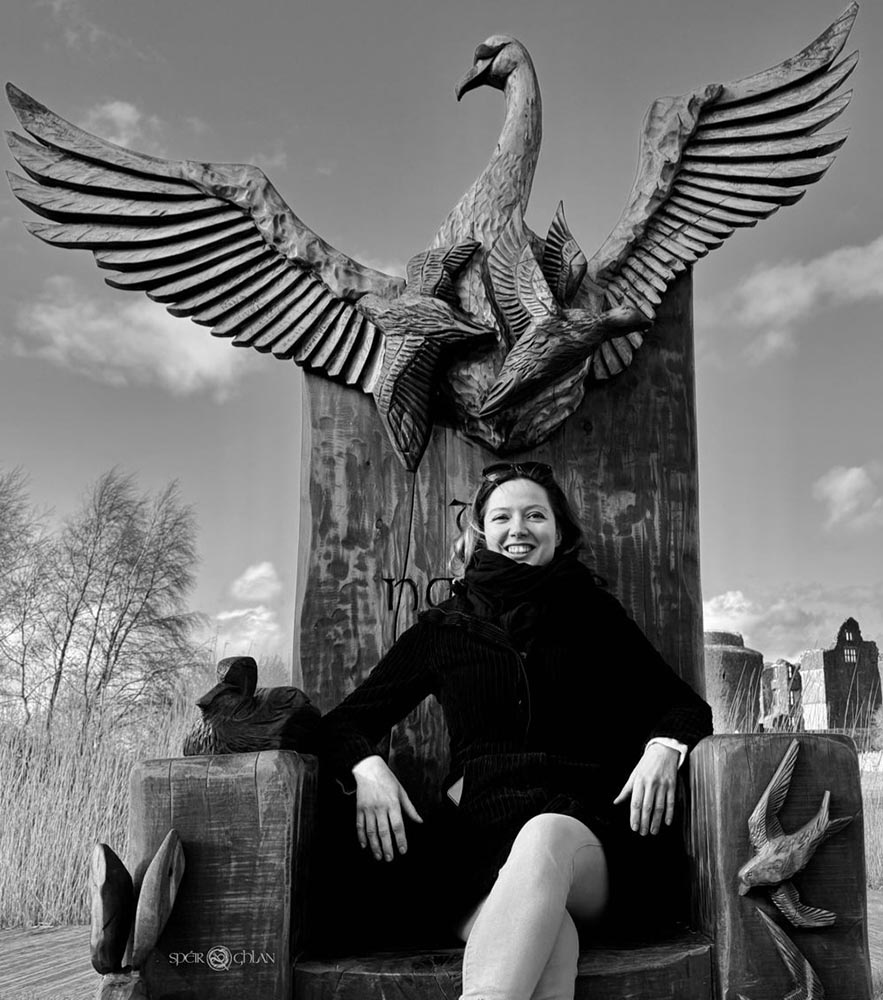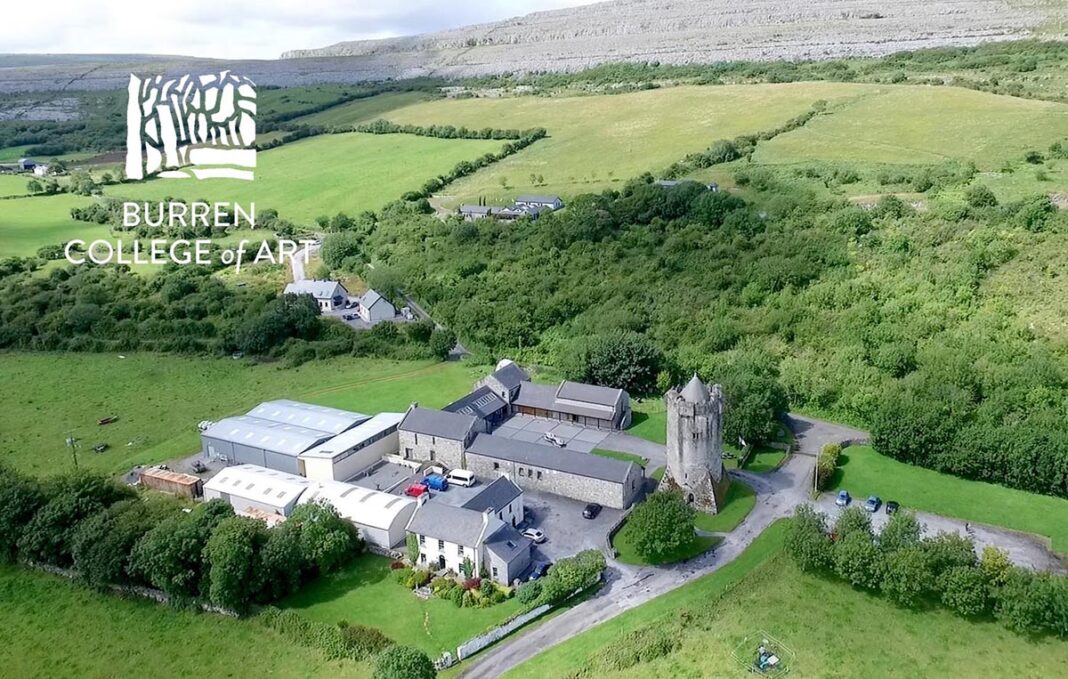Burren College of Art has announced that Katrina Dybzynska of Co. Mayo is this year’s recipient of the David Whyte Poet in Residence Award. The residency will take place on the Burren College of Art campus during the month of September.
The Poet -in-Residence Award has been renewed in 2025 for a fourth cycle, made possible through a generous donation by renowned poet, David Whyte. The award offers a four-week residency for a poet of official residency in Ireland, for the dates of September 1-26, 2025.
The aim of this award is to support a poet at any stage of their careers by giving them the time, space, and inspiration to develop their work in the unique environment of the Burren, and the creative community of the College. The recipient will have the opportunity to work alongside students and artists-in-residence and will put on a reading to which the local community will be invited.
The award recipient is chosen by David Whyte in collaboration with BCA and will participate in two remotely delivered advisory or conversational sessions with David during their stay. They will have their own private study room on the BCA campus, to which they will have 24/7 access.
The award also provides accommodation in our campus housing, which includes a private room in shared, self-catering housing. Additionally, the awardee will receive a 5000 Euro bursary.
Residents are welcome to attend College events during their stay, including visiting artist talks and exhibition openings, and to join in the campus community.
More information can be found here at: https://www.burrencollege.ie/programmes/david-whyte-poet-in-residence-award/

Katrina Dybzynska
A nomadic writer in the process of rooting herself in Ireland. Author of Secrets of the Dictator’s Wife (Winner of Aryamati Poetry Prize 2022). Published in Mslexia, Channel, and internationally. She believes that metaphor is our native language and is passionate about the narratives of ecopoetry, uncivilisation, and decolonization. She likes to think that she writes about the climate emergency and migration, but in fact, she mostly writes about pets.
My goal for my poetry is to take a stand. Poetry is a way for me to be in dialog with my surroundings and step outside of my individual experience: my first collection was centered around migration while the second delved into power dynamics in an authoritarian regime.
I’m interested in literature that creates a ripple effect and explores the intersections between rewilding and storytelling. Rather than answers I look for questions that go deeper. I think of my work as cartographic poetry because it aspires to redraw maps. Not in search of expanding the borders but returning the mystery.
As someone who comes from a generation-old town and who spent half of her life looking for a place to call home, the intersection of identity and environment plays a central role in my creative practice. It is this friction between my scattered background and the decades-long observation of what it signifies to be of a place that – hopefully – gives my point of view originality. I aspire to write poems that speak to myths and folk tales as much as they do to cliffs and bogs.
I strive for poetry to feel alive; to do that, I immerse myself in the experience I am conveying. In this way, my writing is enriched by accents, road dust, and the salty texture of a breeze.
